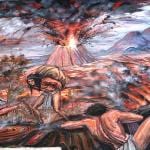Kindness might need a defender. From the 2016 presidential election on, there’s been a debate about effective responses to racism, sexism, heterosexism, questions of immigration reform, systemic injustice — and even just plain rudeness. Do we meet “fire with fire” in our response, do we walk away, or do we handle such dialogue with kindness? Self-proclaimed “kindness enthusiast” and Presbyterian pastor Bruce Reyes-Chow explores those options and more in his new book, “In Defense of Kindness: Why It Matters, How It Changes Our Lives, and How It Can Save the World” (Chalice Press, 2021).
Reyes-Chow wants to make it cool to be kind — pointing to the teachings of Mister Rogers as a guide. “We have lowered the kindness bar, and we have become lazy,” he said, reflecting on how easy it is for dads to be declared amazing when they do any small amount of housework or childcare while so much more is expected, daily, of moms. We are too kind to some groups and too withholding of kindness to others. Drawing on his work in conflict resolution in organizations and his deep understanding of systemic racism, Reyes-Chow tells us it’s OK — even admirable — to be kind to individuals in our lives, but we need to expand that to be kind on a macro level, working to dismantle systems of poverty, racism and other forms of discrimination. Kindness is about more than white people cheering on #BlackLivesMatter, it’s also about white people laying down privilege and not making every social justice effort about them.
In Defense of Kindness is written in short, easy-to-digest chapters addressing ways we can nurture kindness with those closest to us, in the public square, interactions on the internet, as well as times we use kindness in toxic ways — allowing pity and guilt to drive us to acts of kindness that are not helpful to others but serve only to, as he puts it, “bargain away the sins of our past or alleviate our responsibility to be part of global recovery efforts in times of tragedy.” He tells a story about Christian groups that sent boxes of extra-large paper hospital gowns to Haiti after the 2009 earthquake. Seems like a kind gesture, but:
This was the last thing this hospital needed. First, extra-large gowns are huge, and second, paper hospital gowns in such a sweat-inducing climate are not durable. (93)
The gowns ended up useful in one way: they were burned to provide heat.
One of the toughest challenges for many of us is what Reyes-Chow entitles “Kindness to The Politician.” Being kind to the elected official who does not exhibit kindness to people who are poor, sick, disabled or otherwise oppressed is really hard for social justice advocates. But, being kind to the powerful, elected politician who shows little compassion doesn’t mean we ignore their actions and keep our mouths shut. “To be kind to The Politician means holding them accountable without denying their personal struggles and experiences,” says Reyes-Chow.
So, if you think kindness is in short supply and you struggle with what it means to be kind in difficult situations, this small book can help you think through ways to improve. It includes reflection questions at the end of each chapter, making it a nice guide for a book club or spirituality group, or for individuals to use for journaling or reflection on a solo retreat.
Teresa Blythe is a writer and spiritual director based in Phoenix. You can find In Defense of Kindness from Chalice Press on Amazon. More on Bruce Reyes-Chow is found at www.reyes-chow.com.












